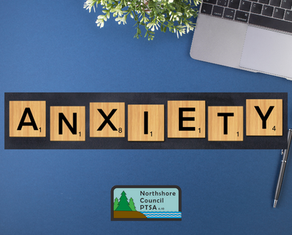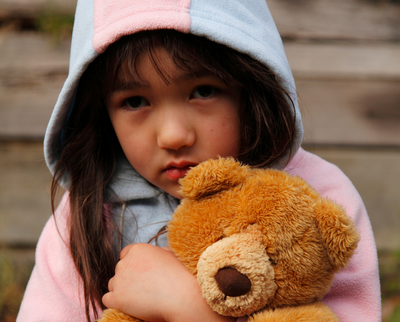 It can save your life, or paralyze you. It can push you to prepare for a test, or it can spiral around in your mind preventing you from doing your daily activities. Anxiety is a normal reaction to different situations in our lives. It is our warning system that alerts us to danger to prepare us to react and get to safety. Anxiety can even be helpful to motivate us to prepare for work, a speech, a move, or even a party! When the fear and distress of anxiety gets in the way of our daily lives, it may be an anxiety disorder. Anxiety is the most common mental health concern in the United States. Nearly 20% of all adults have an anxiety disorder, while 7% of kids will experience anxiety each year, and that number is rising. Anxiety can be caused by genetics, the environment (traumatic events or illness), or a combination. Treatments, including medication, therapy, and relaxation techniques, can be quite effective. When youth, especially, get appropriate treatment, it can make an enormous difference in the trajectory of their lives. There are several types of anxiety, according to NAMI and Mental Health America: Generalized Anxiety Disorder - GAD produces chronic, exaggerated worrying about everyday life which can consume hours each day, making it hard to concentrate or finish daily tasks. A person with GAD may become exhausted by worry and experience headaches, tension, or nausea. Social Anxiety Disorder - More than shyness, this disorder causes intense fear about social interaction, often driven by irrational worries about humiliation (e.g. saying something stupid or not knowing what to say). Someone with social anxiety disorder may not take part in conversations, contribute to class discussions, or offer their ideas, and may become isolated. Panic attacks are a common reaction to anticipated or forced social interaction. Panic Disorder - This disorder is characterized by panic attacks and sudden feelings of terror sometimes striking repeatedly and without warning. Often mistaken for a heart attack, a panic attack causes powerful physical symptoms including chest pain, heart palpitations, dizziness, shortness of breath and stomach upset. Many people will go to desperate measures to avoid an attack, including social isolation. Phobias - We all tend to avoid certain things or situations that make us uncomfortable or even fearful. But for someone with a phobia, certain places, events, or objects create powerful reactions of strong, irrational fear. Most people with specific phobias have several things that can trigger those reactions; to avoid panic, they will work hard to avoid their triggers. Depending on the type and number of triggers, attempts to control fear can take over a person’s life. OCD - Repeated, intrusive, and unwanted thoughts or rituals that seem impossible to control. PTSD - Persistent symptoms that occur after experiencing a traumatic event such as war, rape, child abuse, natural disasters, or being taken hostage. Nightmares, flashbacks, numbing of emotions, depression, and feeling angry, irritable, distracted, and being easily startled are common. If you or your child are struggling with anxiety, there is help! Talk to your doctor or health care professional. As always, take care of yourself first so that you can care for your kiddos.
This article was brought to you by Northshore Council PTSA's Mental Health Committee.
For past articles and more resources, please visit our Mental Health Awareness page. Comments are closed.
|
�
Archives
June 2024
Categories
All
|
Northshore Council PTSA is a welcoming organization that works to support our Local PTAs and serve the children and youth of our community through advocacy, collaboration, education, engagement, leadership, and mentorship.


 RSS Feed
RSS Feed

